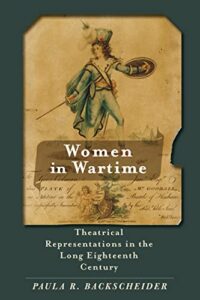
Women in Wartime: Theatrical Representations in the Long Eighteenth Century.
[Post-print index and primary bibliography additions and corrections.]
Questions: When significant numbers of talented women were trained to act on the London stage, what did playwrights and managers discover they could do?
Designing a major “case study,” I explored what actresses could be used to do during the major crises of the century: its numerous, increasingly global wars.
Discoveries: a shadow history of women’s breeches parts.
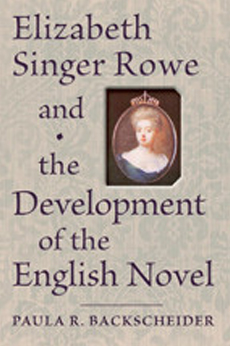
Elizabeth Singer Rowe and the Development of the English Novel.
Questions: What happens when Rowe is analyzed as a fiction writer instead of a poet? Her fiction came out in the “empty thirties,” the low point in publications of prose fiction in the century? What were her contributions to this decade of transitional style?
Discovery: an unpublished miniature portrait of her as a beautiful young woman painted from the original by Mary Beal.
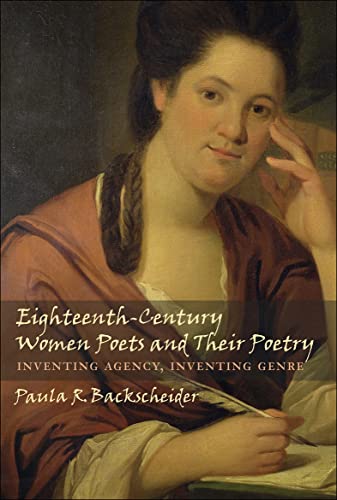
Eighteenth-Century Women Poets and Their Poetry: Inventing Agency, Inventing Genre.
Questions: What happens when women poets are integrated into the history of eighteenth-century poetry? In what poetic genres did they write, and how did they adapt and modify them?
Discoveries: Women understood and wrote in all of the major, most respected genres. “Retirement” poems are defined by John Sitter as “solitary writers for solitary readers,” yet rather than solitary brooding, women’s poems of this type usually have a companion and laughter is more common than gloom in their intimate space.
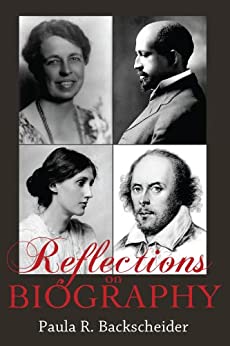
Reflections on Biography.
Questions: The first section studies the major decisions that all biographers must make. It asks how they shape the readers’ experience and what attention to them can reveal that is usually invisible to the ordinary reader. The second section asks what social developments and changes are exerting pressure on the form and leading to experiments, innovations, and the expansion of readers’ experience.
Discoveries: Feminist and African American academic biographers have produced what might be identified as canons. They often illustrate the inseparable dynamic among history, historical processes, immediate socio-historical circumstances, and the individual’s actions and interior life. Biographies of musicians, painters, and mathematicians are especially challenging, and require translations of their life, thought, work practices, and achievements into a linear account in accessible language.
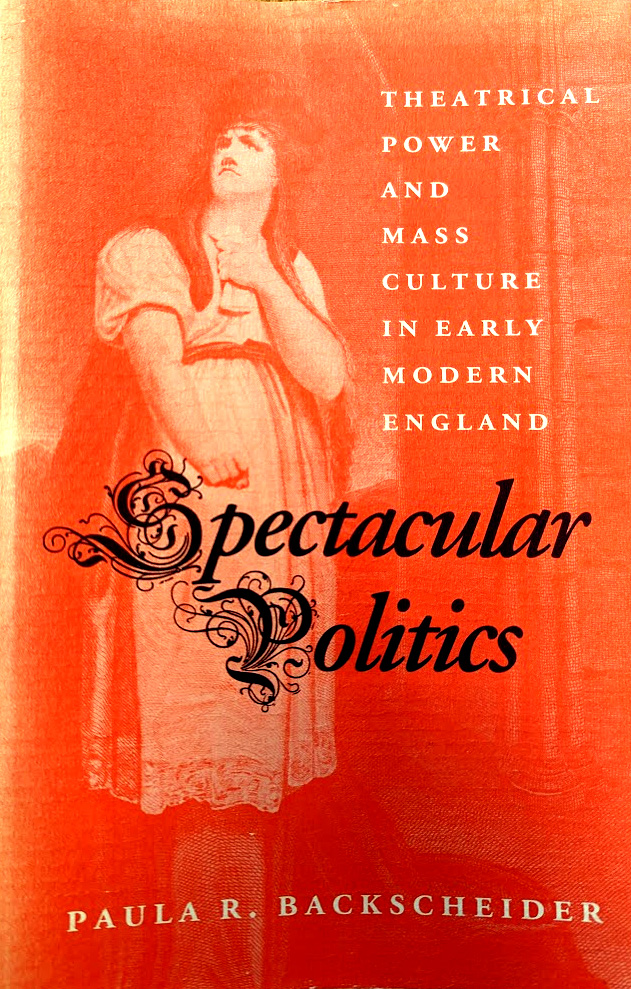
Spectacular Politics: Theatrical Power and Mass Culture in Early Modern England.
Questions: What happens when the concept that “for every action there is an equal and opposite reaction” is applied to a social, political or aesthetic revolution? What do a test with the restoration of Charles II and with the rise of Gothic drama reveal?
Discoveries: In this book credited with being formative for the field of Performance Studies, the method definitively proves the close alliance between the politics of power and popular theatre. Among the ways the City of London, resonating to their Charter granted by William the Conqueror, countered Charles II’s reclamation of power over it was with street pageants and a progress with Thames’ barges including those from the ancient Livery Companies.
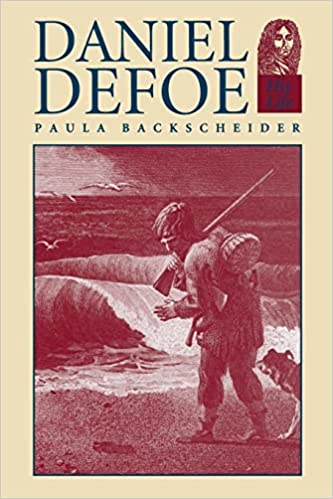
Daniel Defoe: His Life.
Questions: What would a “whole life of Defoe, author of Robinson Crusoe” reveal in addition to what we know from literary biographies of him?
Discoveries: The message signed by the outlining how Defoe would be released from Newgate Prison, a quest pursued for nearly 100 years by biographers. Defoe was as innovative in many endeavors as he is known to be in the history of prose fiction. Examples are his Tour Thro’ the Whole Island of Great Britain, an economic geography, and his pioneering counterintelligence work.
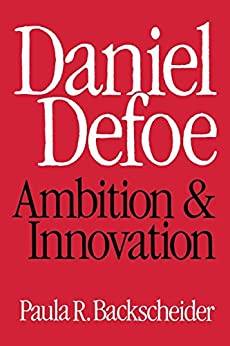
Daniel Defoe: Ambition and Innovation.
Questions: How can we explain what Defoe strategically chose to write? What elements of a literary biography were removed from Daniel Defoe: His Life?
Discovery: Jure Divino, a philosophical verse essay, and its contexts reveal Defoe’s literary models and literary ambitions and his engagement with important philosophical ideas as he entered the debate over absolute monarchy, which he considered a specious, outmoded idea.